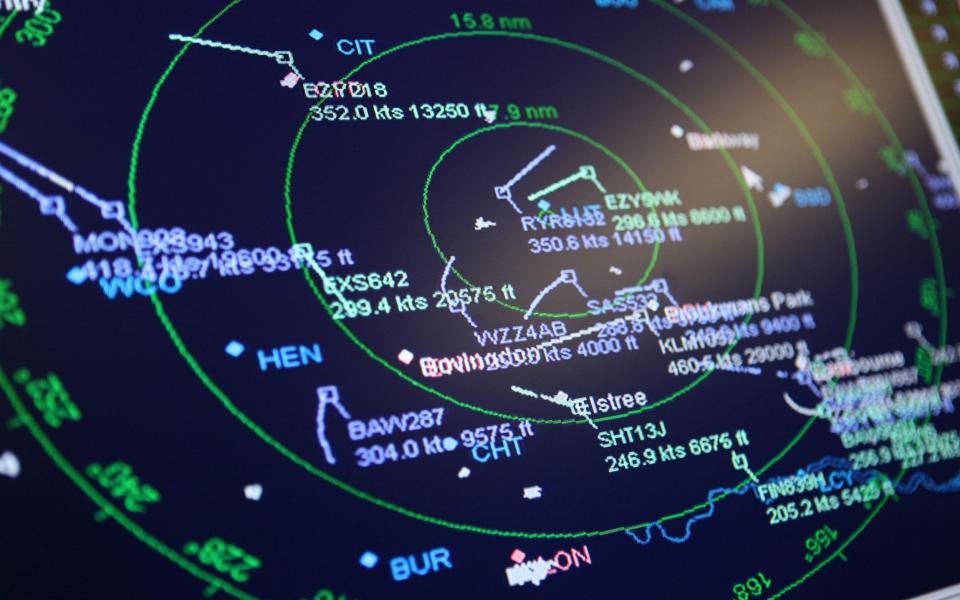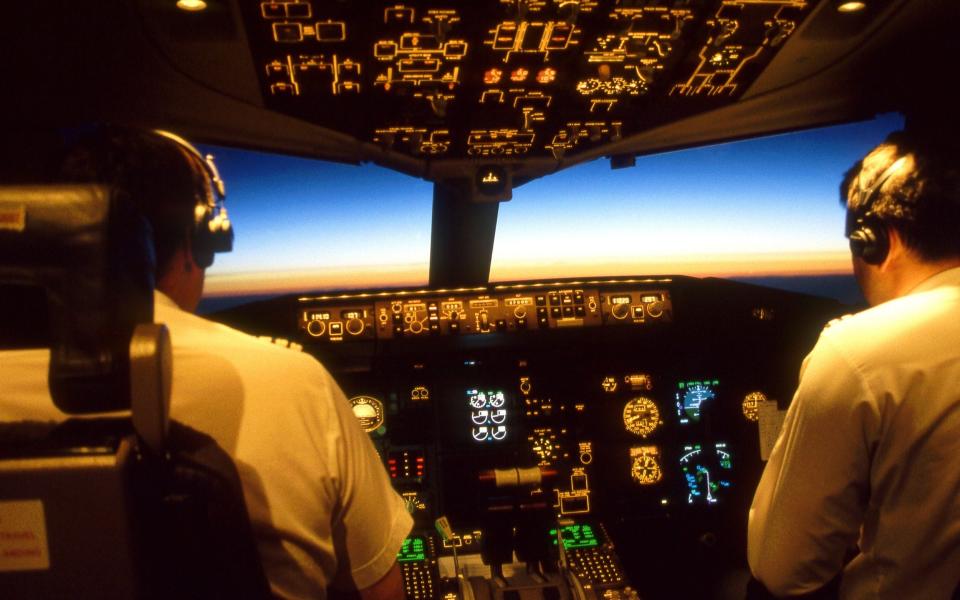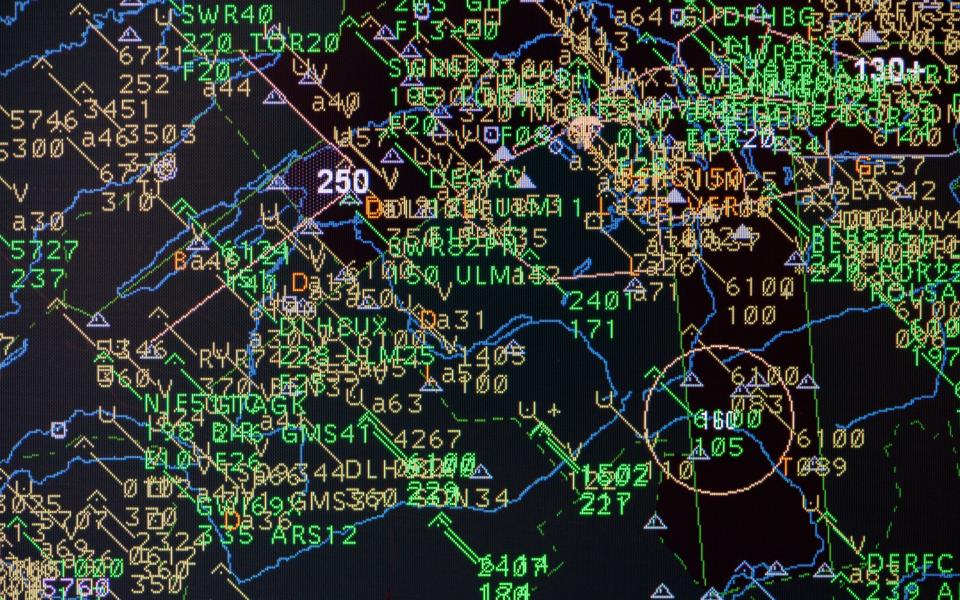Russia is constantly targeting our planes, pilots say – here’s how it happens


It sounds like every pilot’s worst nightmare – the hijacking of a plane’s GPS while it’s suspended some 40,000 ft above ground, with hundreds of passengers on board.
Yet this sort of scenario, it has emerged, is remarkably commonplace, with new data showing that 46,000 planes flying over the Baltic have logged GPS problems since last August.
Two types of interference are taking place: intentional signal “jamming”, where GPS signals are blocked, and “spoofing”, where planes are sent fake GPS position signals in an attempt to throw them off course. Both spoofing and jamming are not new, but instances of both became common “around the airspace of Ukraine when the conflict began in 2022”, says David Mumford of Opsgroup, which monitors changes in global airspace.
“But then in 2023 we started getting reports of spoofing across the Middle East, including instances near Iraq, Iran, Egypt, Israel, Jordan, Turkey, Cyprus and Lebanon. We’ve since had reports from all kinds of other places, including Pakistan, Niger and China.” Opsgroup knows of one spoofing incident where a plane almost drifted into Iran’s airspace, where missiles were ready to meet unauthorised aircraft.
At the end of March there was a “63-hour sustained period of GPS jamming in the Baltic area”, says Mumford. One person presumed to be a victim of this incident was Grant Shapps: last month an RAF plane carrying the Defence Secretary home from Poland had its GPS signal tampered with for half an hour while the plane flew close to Kaliningrad, a Russian enclave sandwiched between Poland and Lithuania.

Nato too says that spoofing and jamming are on the rise. “We have seen an increase in GPS jamming since the start of Russia’s war against Ukraine, and allies have publicly warned that Russia has been behind GPS jamming affecting aviation and shipping,” a Nato official says. “Russia has a track record of jamming GPS signals and has a range of capabilities for electronic warfare. In the Middle East, Russia has used GPS jamming against Allied air forces fighting Isis for years.”
It certainly sounds concerning. Furthermore, it appears there is little airlines or aviation authorities can do to tackle the trend. GPS-jamming equipment can be operated in the air by planes and drones, or by vehicles on the ground below. But exactly how it’s done is unknown. “Even if you were to ask a tech expert how jamming or spoofing is done they wouldn’t be sure,” says Nick Eades, who was the world’s most experienced Boeing 747 pilot when he retired in 2022. “The Americans who look after the GPS system look at ways to prevent it from happening, but in a few weeks the people behind it will have found another way to corrupt the signals.”
As for the motivation behind the attackers, Richard Dearlove, former head of the secret service, thinks that all this is an ominous show of power on Russia’s part. Dearlove says that GPS jamming is typical of Russia. “We’re in a state of grey war with Russia,” he says. “None of this is particularly surprising, but it does reflect the fact that we are in a confrontation with Russia, and we are only just beginning to realise the seriousness of that here in the West.”
Dearlove points out that Russia is likely to have tampered with three under-sea internet cables that went out of action last year.

“Either those were simultaneous accidents, or someone did something to demonstrate their capability,” he says, and signal jamming works to much the same effect. Russia will “do all sorts of things to undermine the quality of our daily life and disrupt things”, Dearlove says, “and messing with our air travel or our internet cables is a very good way to do that.”
Opsgroup says that on the whole such instances are “just becoming more widespread” rather than more disruptive. But Dearlove thinks that we are right to see the menace behind jamming and spoofing, even if it’s relatively harmless. “It’s a low-quality means of heightening our insecurity without coming into direct conflict with us,” he explains. “It’s very difficult for us to mount a reaction to things like this because it’s not like we’re going to turn around and block their GPS in retaliation – it’s just not what we do to civilian aircraft.”
So should passengers be worried? Yes and no. Spoofing and jamming are illegal for individuals in this country to carry out, Eades says, and for good reason. “Any time you interfere with an aircraft it’s dangerous,” he explains. “It’s not a good idea, like shining a laser light into a pilot’s eyes, it’s just downright stupid and irresponsible.”
But he also makes it clear that pilots are easily able to respond to attacks. “It certainly wouldn’t ruin [a pilot’s] day,” Eades says. “You might need to put your coffee down and use your brain for a bit, but in the grand scheme of things that could go wrong, it’s just an annoyance.”
When such a thing happens, the pilot “gets a warning light” which is “the plane telling you that it doesn’t think its GPS is working properly”, says Eades. “You then have to go into the system and work out what’s wrong.” An easy task, Eades says: planes have two other navigation systems, so should your GPS seem to wander off course, pilots simply opt to follow the others.

“It’s definitely a modern phenomenon and jammed flights are much more common today,” he adds. “These days, the Chinese and the Russians, they have more sophistication and can interrupt systems far more frequently.” But such failures are “something we know of and train for”, he adds. Besides, planes didn’t have GPS when Eades qualified some 35 years ago.
Another pilot, speaking anonymously, says that he has personally “experienced it a few times over the Baltic, flying to and from Lithuania, Latvia and Estonia”.
Pilots are discussing the issue on forums and warning their colleagues, but each time “it was quite obvious, and easily dealt with,” he adds. “In each case it lasted only a few minutes as we quickly transited the area near Kaliningrad. Once the crew has taken effective action, the flight simply continues on its way. Passengers would feel nothing and be none the wiser.”
Nato warns that GPS troubles are unlikely to end any time soon. An official says that “electronic warfare, including against GPS, is likely to feature in any future conflict, and we welcome allies’ investments in more jamming-resistant technologies”. But in Eades’ eyes, flying is no less safe today than it was three decades ago. “It honestly doesn’t concern me,” he says. “I’d still be very happy to get on a plane today knowing what’s going on.



